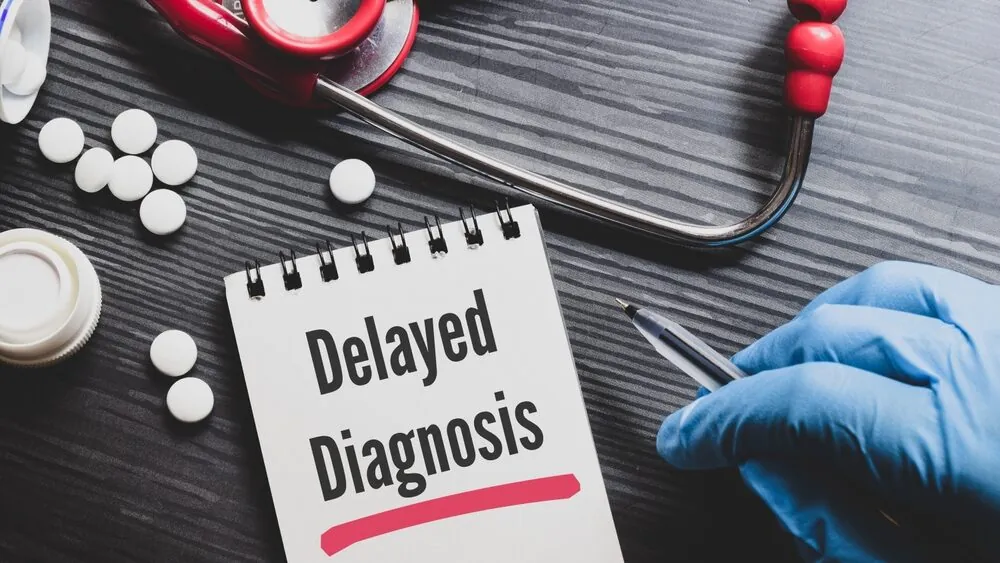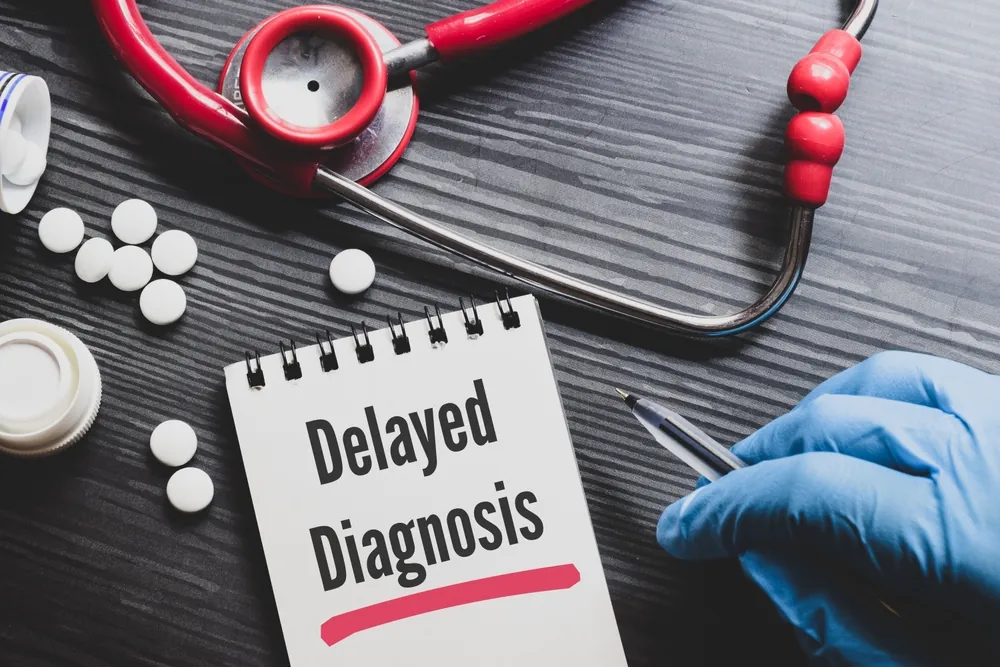From Oversight to Lawsuit: Delayed Cancer Diagnosis

In the realm of healthcare, timely and accurate diagnosis plays a pivotal role in ensuring effective treatment and a positive prognosis for patients. However, instances of delayed cancer diagnosis continue to surface, leading to detrimental consequences for patients and their families. This article delves into the multifaceted issue of delayed cancer diagnosis, focusing on the reasons behind such delays, warning signs, prevalent types of cancer prone to delayed diagnosis, preventive measures, and the importance of seeking legal representation.
Understanding Delayed Cancer Diagnosis:
A delayed cancer diagnosis refers to a situation where a patient’s cancer is not accurately diagnosed in a timely manner, potentially allowing the disease to progress to a more advanced stage. This delay can lead to reduced treatment options, a poorer prognosis, and increased physical, emotional, and financial hardships for the patient and their loved ones.
Various factors can contribute to a delayed cancer diagnosis, including:
1. Medical Negligence: Errors in conducting tests, misreading test results, or failing to order necessary tests can result in diagnostic delays.
2. Misinterpreted Symptoms: Cancer symptoms can often be vague and mimic other non-serious conditions, leading to misinterpretation by healthcare providers.
3. Incomplete Medical History: Inaccurate or incomplete patient medical histories can hinder the healthcare provider’s ability to make an accurate diagnosis.
4. Communication Breakdown: Poor communication between medical professionals or between doctors and patients can lead to missed opportunities for diagnosis.
5. Limited Access to Medical Care: Patients with limited access to healthcare facilities or those in remote areas may experience delays in diagnosis due to a lack of timely medical attention.
6. Overworked Medical Staff: Healthcare professionals overwhelmed with heavy workloads might not be able to dedicate sufficient time to each patient, potentially resulting in missed diagnoses.
7. Diagnostic Errors: Medical tests such as biopsies, blood tests, or imaging scans can sometimes yield false-negative results, causing a delay in diagnosis.
Most Common Types of Cancer with Delayed Diagnosis:
Several types of cancer are commonly associated with delayed diagnoses:
- Lung Cancer: Due to its often asymptomatic early stages, lung cancer is notorious for delayed diagnoses. Chronic coughs and respiratory symptoms are often misattributed to other conditions, leading to missed opportunities for intervention.
- Colon Cancer: Symptoms like changes in bowel habits, rectal bleeding, and abdominal discomfort can be misattributed to less serious conditions, leading to a delayed diagnosis.
- Breast Cancer: Inadequate interpretation of mammograms or misdiagnosis of breast lumps can lead to delayed detection of breast cancer.
- Ovarian Cancer: This type of cancer is challenging to diagnose early due to vague symptoms like bloating, pelvic pain, and changes in appetite.
- Pancreatic Cancer: Often diagnosed late as its symptoms, such as abdominal pain and jaundice, mimic other gastrointestinal problems.
- Skin Cancer: Melanomas, a highly aggressive form of skin cancer, can be misdiagnosed or overlooked, leading to delays.
Legal Implications and Patient Rights:
Delayed cancer diagnosis cases often fall within the realm of medical malpractice law. Medical malpractice occurs when a healthcare professional’s negligence results in harm to a patient. In the context of a delayed cancer diagnosis, patients have certain rights:
1. Standard of Care: Healthcare professionals are expected to provide a standard of care that aligns with accepted medical practices. Failure to meet this standard may constitute negligence.
2. Causation: Patients must demonstrate that the delayed diagnosis directly caused harm or worsened the prognosis. In cases where the delayed diagnosis leads to the patient’s death, their surviving family members may have the right to pursue a wrongful death claim.
3. Statute of Limitations: There is a limited window within which patients can file a medical malpractice lawsuit. In Florida, the statute of limitations for medical malpractice claims is generally two years from the date the negligence was discovered or should have been discovered.
Seeking Legal Representation:
When faced with the devastating consequences of a delayed cancer diagnosis, seeking legal representation becomes crucial. Our Florida-based law firm specializes in medical malpractice and understands the intricacies of pursuing justice in such cases. We are committed to advocating for victims of delayed cancer diagnosis and helping them recover their rightful compensation for medical expenses, pain, suffering, and lost quality of life.
Key Takeaway:
A delayed cancer diagnosis can have profound implications, altering the course of a patient’s life and affecting their loved ones. By understanding the reasons behind delayed diagnoses, recognizing warning signs, taking preventive measures, and seeking legal representation when necessary, individuals can navigate this challenging landscape with greater awareness and confidence. Our law firm remains dedicated to guiding clients through the legal complexities of delayed cancer diagnosis cases, striving for justice and closure.
Contact Lawlor, White & Murphey Today For a Free Consultation About Your Medical Malpractice Lawsuit
At Lawlor, White & Murphey, we understand the pain and turmoil that a delayed cancer diagnosis can inflict upon patients and their families. When the course of life is altered due to medical negligence, seeking justice becomes a priority. Our Florida-based law firm is your ally in the fight for rightful compensation, holding responsible parties accountable for their actions.
Our seasoned team specializes in medical malpractice cases, and we possess an in-depth understanding of the complexities involved in delayed cancer diagnoses. We approach each case with empathy and care, recognizing the emotional toll these situations can take.
We are relentless in pursuing justice for our clients, leaving no stone unturned to build a strong case on your behalf. Our track record speaks for itself—we’ve successfully secured compensation for medical expenses, pain, suffering, and more for countless clients.
If you or a loved one has been a victim of a delayed cancer diagnosis, don’t navigate this challenging journey alone. Our dedicated legal team is here to guide you through every step, ensuring your rights are protected and justice is served. Contact us today for a confidential consultation and take the first step towards reclaiming control over your future.
